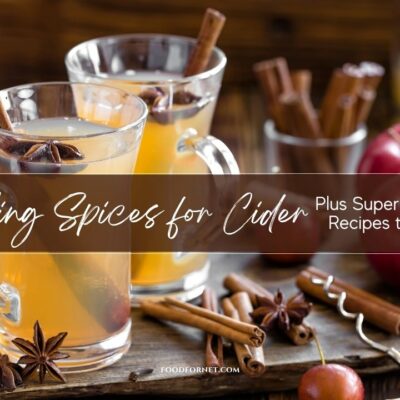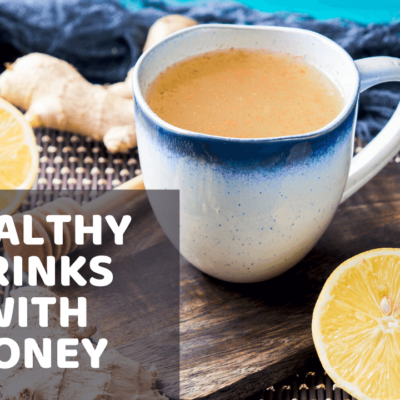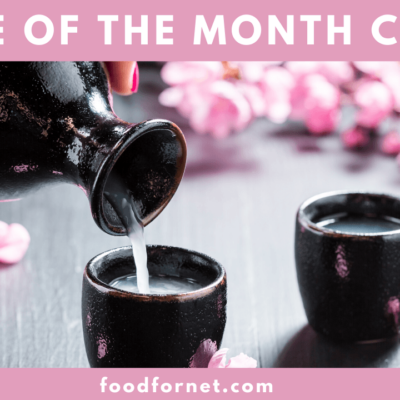
Moonshine has a long and fairly sordid history. The term refers to home-distilled spirits, which are often clear and have a high alcohol content. In the United States, moonshine is often a type of clear and unaged whiskey, but there is plenty of variation. So can you learn how to make moonshine at home?
Moonshine is, by its very nature, illegal. You can get permits to distill spirits at home and some companies even sell spirits that they call moonshine. However, the term specifically refers to illegally distilled spirits, not to anything made legally. As a result, the question of how to make moonshine is certainly a loaded one.
Don’t worry, we are going to answer it, but only from a theoretical point of view. We’re certainly not suggesting that you should go out and actually make moonshine. Still, the conversation is an interesting one and it’s worth understanding the processes involved.
P.S. If you do want to make your own alcohol, why not experiment with wine, beer, or even mead? These aren’t subject to the same federal ban and producing them is legal in all American states. Just be sure to check local laws, as the specific rules and restrictions are very different from each other.
The Laws Surrounding Moonshine

So, as we just mentioned – distilling spirits at home is illegal under federal law in the United States (and in many other countries). That said, federal law does allow you to own a still for legal purposes, which includes making essential oils or distilling water.
State laws vary dramatically. Sometimes it’s illegal to even own a still, while other times you can own one, but not use it to make alcohol.
There are even some cases where the law appears to allow for the distillation of spirits. Or, at least, would if distilling spirits wasn’t illegal at a federal level. All of this means that you can’t legally make moonshine – as federal law is more powerful than state law.
The main exception is to apply for a license and make moonshine legally instead.
That idea works, but there are two problems. First, there are various rules, fees, and criteria involved. These make getting a license difficult, if not outright impossible, for some people.
In fact, the process is really only relevant if you’re planning to open a company selling spirits. The licenses aren’t intended for individuals these days and can be very difficult to get.
Second, the term moonshine specifically refers to illegally distilled spirits. Any moonshine created legally isn’t moonshine at all.
How To Make Moonshine – Theoretically
So then, if you were going to do it, how do you make moonshine?
Well, as you’ve doubtlessly guessed, moonshine is all about distillation (as is the case for whiskey, brandy, and other spirits). Most people do this by relying on pot stills. Today, we’ll talk about the basic steps, as well as where you can find more details.
Setting Up Your Mash
The first thing to think about is the mash you’re going to use. Corn mash is most famously associated with moonshine, although not everyone makes it this way.
Some people even rely on sugar, which removes the nuances from corn and makes it easier to create vibrant flavors. It’s also possible to use corn and sugar in the same mix.
Regardless, the first step here is making the mash. This involves putting the mash pot on a heat source and bringing it up to around 165°F. Once it hits the desired temperature, remove it from the heat and add flaked corn, stirring regularly. The temperature should naturally cool over time.
At this point, you might add a second type of grain in, like malted barley. The goal is to regularly stir the mixture as it cools. It needs to get down to around 70°F before you add the yeast.
After the yeast has been added, you need to aerate it, often by transferring it between containers. Then it can be moved to a container for fermenting.
The Fermentation Step

Now we move on to fermentation. This is fairly easy, as you’re simply leaving the mash for a week or two at room temperature. However, the environment can’t be too cold, or the mash won’t ferment. Look for somewhere dark and warm where the mash won’t be disturbed.
A hydrometer is useful here, as it allows you to measure the alcohol content of the mash and give you a sense of when fermentation is completed.
Straining and Distilling
Then, you strain the mash, often using a cheesecloth. The goal is to make sure that all solid material remains behind.
Once all these steps have been completed, you’re up to the distilling portion. This takes time and practice to get right, but there are plenty of amazing guides to step you through the processes. Homebrew Academy is a great place to start for more information, as they have a detailed guide that tells you everything you need to know.
The video below comes from their site and offers a fantastic overview of what to expect and what the whole process looks like.
Legal Homemade ‘Moonshine’
Some bloggers talk about legal homemade moonshine recipes, ones that don’t need a still. This recipe from TropRockin is one example.
The recipe creator is correct in one sense – the approach is entirely legal. That’s because you’re not actually distilling anything. Instead, you’re taking a high proof grain alcohol, like Everclear, and then infusing it with other flavors.
The approach is a good alternative if you don’t want to risk making illegal moonshine. But, let’s be honest, you’re not actually making moonshine at all. You’re simply mimicking the flavors of moonshine in a legal way.
Can You Buy Legal Moonshine?

Some companies do produce legal moonshine and sell it commercially. The company Ole Smoky Tennessee Moonshine is an example of this. They even sell their products in mason jars, which makes them feel even more authentic.
Commercial moonshine is often designed to taste as close to the real thing as possible. To do so, companies may produce their moonshine in small batches and avoid refining it too much.
Even so, such products are produced legally, so they’re not truly moonshine. They’re simply legal approximations that are meant to provide a similar sensory experience.
There are almost certainly some people illegally producing and selling moonshine, even these days, and you could theoretically buy moonshine from them. Of course, doing so may be illegal.
Buying or making illicit moonshine could also be dangerous, with the chance of leading to blindness or even death. Do you really want to risk that? After all, you have little way of knowing the safety precautions that the distiller took and whether there were any risky practices.
Video: REAL MOONSHINE vs. STORE BOUGHT SHOWDOWN
Why Is Distilling Moonshine Illegal?
The illegality of distilling spirits is highly contentious. Many people feel that they should be able to distill spirits if they want to. Sure, there are risks, but many other human endeavors are risky too, like skydiving or high speed racing.
Distilling wasn’t always illegal anyway. So, why do we have our current laws?
The Taxation Angle
Officially, moonshine laws are present for tax reasons – to make sure the government actually gets money when people distill and sell spirits. In fact, moonshine initially became illegal as part of the 1862 Revenue Act, which was written to allow the government to tax alcohol, including spirits made at home.
This is why you can legally distill spirits if you have the correct license.
Despite this tax angle, it’s still illegal to distill alcohol for personal use. So, if you don’t have a license, you can’t legally distill spirits at all, even if you never plan to sell a drop.
The Issue Of Safety
While taxation is the official reason that moonshining is illegal, some feel that it should be illegal anyway because of the risk factor.
In particular, moonshine can easily be dangerous if there is considerable contamination in the batch. The alcohol content can end up dangerously high as well, which is a particular problem if people are consuming decent servings of moonshine.
The risk isn’t limited to the finished product either. Stills can explode if they’re not sealed and vented well, which is the last thing anyone wants.
Some home moonshine distillers learn the processes well and do produce safe moonshine. However, that’s certainly not a guarantee. Keeping moonshine illegal helps to lower the risk of people casually turning to moonshine and putting themselves at great risk in the process.
Requiring distillers to be licensed allows the government to establish and enforce testing and quality guidelines. These help ensure that the finished product is actually safe.
What About Moonshiners The TV Show?

Questions about the legality of moonshining often arise due to the series Moonshiners. This docudrama apparently shows people actually making moonshine, which is strange. There would be a huge number of issues with filming and broadcasting people breaking the law in this way.
What’s going on?
One theory is that the people being filmed aren’t distilling moonshine at all. They could be using the same equipment to distill water instead. Doing so would look exactly the same and would be entirely legal.
Alternatively, the participants in the show may have licenses to produce alcohol. This would get around most legal ramifications. Doing so would even allow the moonshiners to sell their alcohol without arrests or threat of imprisonment.
Responses from cast members and local law enforcement also suggest that there’s no real threat of legal issues. While this could simply mean that local law enforcement doesn’t care, it’s much more likely that there isn’t anything illegal going on.
Regardless, the show and the activities shown on it don’t have any bearing on the legality of distilling moonshine yourself. As we’ve already highlighted, distilling spirits without a license is illegal and can land you in serious trouble.
Final Thoughts
We’ve covered a lot of ground today, including how you can make moonshine, the laws surrounding doing so, and some of the risks.
The final question is should you make moonshine? While creating your own spirits is certainly appealing, you need to get the processes just right to create a safe and tasty product.
There’s also the legal side to consider, as distilling your own spirits remains highly illegal. You might face a fine of up to $5,000, up to a year in prison, or both. Your equipment is likely to get seized as well.
Some law enforcement officers do turn a blind eye to people who are distilling just for personal use. Because of this, some people do manage to successfully distill spirits, especially when they are very cautious and remain under the radar. Still, the process is certainly illegal. Is it really worth the risk to make spirits that may not even be as good as what you can buy in the local store?
Honestly, it’s much better to stick with brewing beer or mead instead. Doing so is legal at the federal level and there are fewer health risks as well.

















 How To Make Mead At Home, And Our Favorite Brands
How To Make Mead At Home, And Our Favorite Brands
Leave a Reply